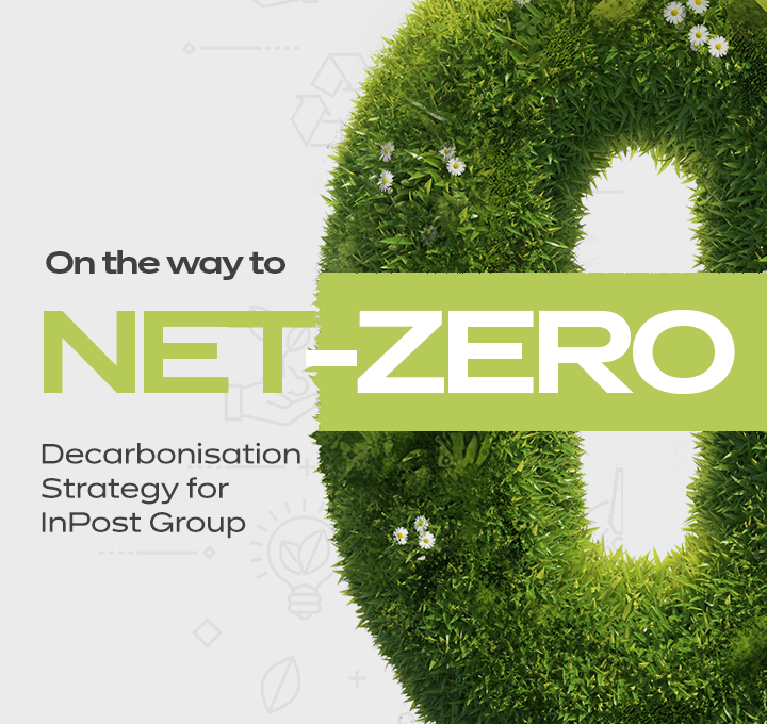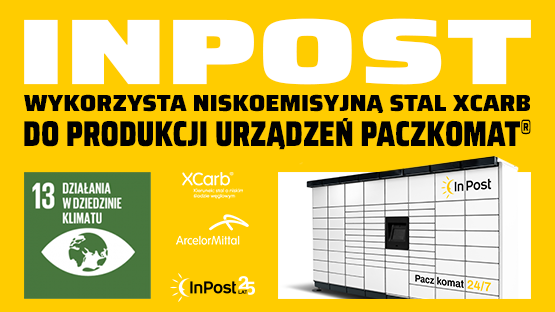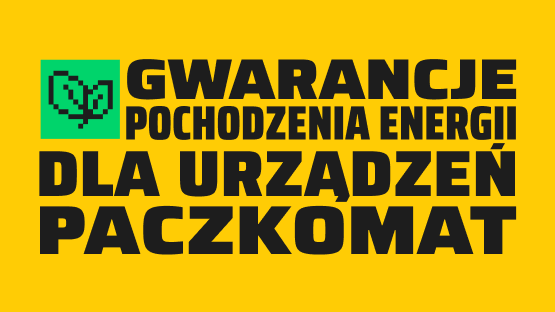

At the InPost Group, we use the potential of technology to conduct business in a socially, economically and environmentally responsible manner.
We fully understand our role in the face of the climate crisis, and the actions we have implemented – the development of a Decarbonisation Strategy for the entire InPost Group in line with the Paris Agreement and the approval of reduction targets by the Science Based Targets initiative – are a natural consequence of our adopted ESG Strategy, to which we devote significant effort.
We manage sustainable development comprehensively, and issues related to the environment, corporate governance, and society are part of our daily business operations. The InPost Group's ESG Strategy, developed for the years 2021-2026, outlines our priorities in three main pillars: In_People, In_Planet, and In_Client.
The ESG Strategy was approved and adopted by the Management Board and Supervisory Board of InPost Group and was first published in the 2021 integrated report. The results of its implementation are continuously monitored and annually transparently published in the integrated report of InPost Group. Reports are available here InPost EU - Integrated Annual Report
Read our integrated annual report for 2024. Check out our ESG Strategy.

As part of developing the Decarbonisation Strategy, we calculated greenhouse gas emissions for the entire InPost Group for the first time. This was a significant step towards understanding the scale of our environmental impact. We measured and updated data on our carbon footprint in three scopes (1, 2, and 3) according to the GHG Protocol standard. Since then, we have regularly calculated our carbon footprint and transparently disclosed progress in achieving our goals.
Our goal is to achieve net zero emissions, which is why, after understanding the scale of emissions and considering the group's business strategy for the coming years, the Management Board and the Supervisory Board adopted science-based decarbonization targets. The development of reduction targets was a result of joining the Science Based Targets initiative (SBTi) in November 2021. At that time, InPost Group issued a letter of intent, publicly committing to set climate targets in line with SBTi criteria within 24 months. In March 2023, our targets were accepted by SBTi.
As part of regularly monitoring the carbon footprint across the entire organization, we improve data quality and periodically report on the status of implementing the Decarbonisation Strategy.
Our climate commitments and the status of implementing the Decarbonisation Strategy:
|
Our targets |
KPI |
Base value 2021 |
Target 2024 |
Result 2024 |
Target 2025 |
|
Short-term targets |
|||||
|
29,462 |
25,338 |
24,973 |
It will be determined following a recalculation of the base year during 2025 to take into account the entry of newly acquired companies into the InPost Group. |
||
|
Emission reduction in Scope 1&2 vs base year [%] |
- |
14.0 |
15.2 |
18.7 |
|
|
InPost Group commits that 69% of its suppliers by emissions covering categories purchased goods and services, capital goods, and upstream transportation and distribution, will have science-based targets by 2027. |
Share of suppliers by emission that have Science Based Targets in Scope1&2 [%] |
0 |
5 |
7.2 |
15 |
|
Long –term targets |
|||||
|
InPost Group commits to reduce absolute Scope 1&2 GHG emissions by 95% by 2040 from a 2021 base year. |
emission reduction in Scope 1&2 [%] |
- |
14.0 |
15.2 |
18.7 |
|
InPost Group commits to reduce absolute Scope 3 GHG emissions by 90% by 2040 from a 2021 base year. |
Emission [t CO2e] |
418,986 |
Emissions may increase until 2027 |
572,893 |
Emissions may increase until 2027 |
|
Reduce absolute Scope 3 GHG emissions by 90% by 2040 from a 2021 base year. |
- |
-36.7% |
|||
|
InPost Group commits to reach net-zero GHG emissions across the value chain by 2040. |
Net-zero |
To be implemented from 2040 |
|||
See our certificate from SBTi
See our NET-ZERO Approval Letter
Greenhouse gas emissions at InPost Group include:
Scope 1 - all direct emissions released from operational activities. For InPost Group, sources of emissions include, among others, natural gas consumption, fuel consumption in company vehicles, and refrigerants released into the atmosphere.
Scope 2 - indirect energy-related greenhouse gas emissions resulting from the generation of purchased electricity and heat (e.g., for APM, offices, warehouses, branches, sorting centers, and the facility producing APM).
Scope 3 - most relevant emission categories
Category 1 - (Purchased goods and services) – covering other purchases
Category 2 - (Capital goods) – mainly related to the production of APM
Category 4 - (Upstream transportation and distribution) - outsourced by the company; emissions related to transportation and courier activities
Category 9 - (Downstream Transportation and Distribution) – not outsourced by the company; emissions from consumer transportation to pick up a parcel from APM and return home

What are Science-Based Targets?
- The Science Based Targets initiative (SBTi) is a global institution that enables companies to set ambitious emission reduction targets in line with the latest climate science. It focuses on accelerating the commitment of companies worldwide to decarbonisation efforts in order to achieve net-zero emissions by 2050.
- The initiative is a result of collaboration between CDP, the United Nations Global Compact, the World Resources Institute (WRI), and the World Wide Fund for Nature (WWF), and is one of the commitments of the We Mean Business Coalition.
- SBTi defines and promotes best practices in setting science-based targets, provides resources and guidance to reduce barriers to adoption, and independently assesses and approves companies’ targets.
- The greenhouse gas emission reduction targets adopted by companies are considered science-based if they are consistent with what the latest climate science deems necessary to achieve the goals of the Paris Agreement.
We were the first company in Poland to approve our goals by SBTi with the NET-ZERO goals by 2040 and we were the third company in the world in the logistics sector to pursue an ambitious decarbonization path by 2040.
Why are we doing this?
This is an integral part of the InPost Group's strategy
At InPost, the Decarbonization Strategy is closely linked to the business strategy. We cannot develop without respecting the natural environment, especially since we know that the intensive development of e-commerce has a huge impact on it. The InPost Group joining the group of SBTi members is an extremely important step towards full decarbonization.
We understand the climate challenges.
In the Paris Agreement of 2015, world governments committed to limiting the rise in global temperature to well below 2°C above pre-industrial levels and to continue efforts to limit warming to 1.5°C. According to the 2023 report by the Intergovernmental Panel on Climate Change (IPCC), this goal is still achievable; however, the path to achieving it is quickly narrowing, as the global production of planet-warming pollutants continues to increase.
We don’t have much time
To achieve this goal, greenhouse gas emissions must be halved by 2030 and reduced to net-zero by 2050. Unfortunately, we have limited time to act, and we believe that the private sector has the most significant role to play.
We enable low-emission delivery to Parcel Lockers®
Our business model – delivery to a Parcel Locker® is a low-emission form of delivery. . The goals we have set will require greater innovation, forward-thinking, and the engagement of suppliers, business partners, and customers.
Below are the carbon footprint calculations per package:
Average carbon footprint per parcel on the last mile [kg CO2e], Poland, 2023-2024 , WTW
|
Transport |
+ heating and energy consumption in branches. sorting plants. APMs. as well as data transfer and IT infrastructure |
+ consumer’s path to the APM/PUDO and back |
|||||||
|
2023 |
2024 |
YoY |
2023 |
2024 |
YoY |
2023 |
2024 |
YoY |
|
|
Delivery to APM/PUDO |
0.009 |
0.008 |
-8.70% |
0.024 |
0.020 |
-14.90% |
0.069 |
0,070 |
0.50% |
|
Delivery 2DOOR |
0.418 |
0.363 |
-13.20% |
0.433 |
0.375 |
-13.40% |
0.433 |
0.375 |
-13.40% |
|
CO2 reduction from delivery to APM/PUDO vs. 2DOOR |
98% |
98% |
-0.1% |
94% |
95% |
0.10% |
84% |
81% |
-3.1% |
Average carbon footprint per parcel on the whole route [kg CO2e], Poland, 2023-2024, WTW
|
|
Transport |
+ heating and energy consumption in branches, sorting plants, APMs, as well as data transfer and IT infrastructure |
+ consumer’s path to the APM/PUDO and back |
||||||
|
|
2023 |
2024 |
YoY |
2023 |
2024 |
YoY |
2023 |
2024 |
YoY |
|
Delivery to APM/PUDO |
0.155 |
0.144 |
-7.00% |
0.198 |
0.18 |
-9.40% |
0.244 |
0.229 |
-6.00% |
|
Delivery 2DOOR |
0.568 |
0.497 |
-12.40% |
0.611 |
0.533 |
-12.80% |
0.611 |
0.533 |
-12.80% |
|
CO2 reduction from delivery to APM/PUDO vs. 2DOOR |
73% |
71% |
-2.30% |
68% |
66% |
-1.90% |
60% |
57% |
-5.20% |
We have created a Carbon Footprint Calculator for Parcels, allowing customers in Poland to learn about the greenhouse gas emissions generated by their delivery. Our business partners will automatically receive emission reports starting in May 2024. Our goal is to provide high-quality data to help sellers monitor their carbon footprint and report it in accordance with environmental guidelines. We will provide data quarterly, covering not only transportation but also emissions from energy consumption in branches, sorting centers, and APM, as well as data transfer and IT infrastructure.
Deloitte Advisory sp. z o.o. sp. k. conducted an independent assessment of the methodology and assumptions adopted by InPost in accordance with GHG Protocol guidelines.
The whole route includes the first mile (from dispatch to delivery to the nearest warehouse), middle mile (from warehouses to the delivery warehouse) and the last mile (from the delivery warehouse to parcel delivery).
Additionally, we show emissions including the average carbon footprint of a consumer's travel to a APM.
What do WTW and TTW mean?
WTW (Well-to-Wheel) is a term related to the analysis of energy efficiency and emissions associated with motor vehicles. It refers to an analysis that considers the entire lifecycle of energy, from raw material extraction, through fuel production and transport, to its combustion in a vehicle engine. This comprehensive approach considers the full environmental impact of a given type of fuel or energy source, as opposed to the TTW (Tank-to-Wheel) method, which only accounts for emissions generated during fuel combustion. We use the term WTW in reference to fuels, electricity, and heat used in vehicles, buildings, and APM.
What projects are we involved in?
- We are working on modern R&D solutions that will reduce emissions generated in the production process of Parcel Lockers®
- We are investing in an electricity greening project
- We produce Parcel Lockers® with photovoltaic panels, as well as for a battery that can be charged with energy from renewable sources
- We replace our own diesel fleet with electric ones and support our carriers in replacing them
- We are introducing biofuels
- We implement modern logistics processes to optimize the route of couriers
- We are working on a calculator for calculating the carbon footprint for a parcel in more foreign markets
- We are developing EV charging infrastructure
- We are introducing solutions within the InPost Group and its value chain to reduce Scope 3 emissions
- We involve suppliers in their emission reductions
FAQ
The Decarbonisation Strategy is the company's plan to reduce carbon dioxide (CO2) and other greenhouse gas (GHG) emissions in line with climate goals. It includes actions such as process optimization, investments in renewable energy, and sustainable transportation.
Net-zero, as defined by the Science Based Targets initiative (SBTi), refers to a state where an organization balances the greenhouse gas (GHG) emissions it produces with the amount removed from the atmosphere. This means that the total GHG emissions generated by a company are equal to the emissions removed, resulting in a net-zero climate impact.
SBTi defines net-zero based on two key components:
- Emission Reduction: Organizations must significantly reduce their GHG emissions in alignment with a trajectory that limits global warming to 1.5°C above pre-industrial levels. This includes reducing emissions across the entire value chain, both direct and indirect.
- Emission Removal: To offset any remaining emissions that cannot be eliminated, organizations must invest in technologies and projects that remove an equivalent amount of GHG from the atmosphere. This may involve natural solutions, such as afforestation, as well as technological solutions like carbon capture and storage (CCS).
Net-zero, according to SBTi, is a more stringent approach than carbon neutrality, as it requires concrete emission reduction efforts rather than simply offsetting emissions through carbon credits. Organizations must demonstrate sustained emission reductions as a priority before utilizing emission removal mechanisms.
The Paris Agreement is an international climate treaty aimed at limiting global warming to a maximum of 1.5–2°C above pre-industrial levels. Countries have committed to reducing emissions and supporting climate adaptation efforts.
Greenhouse gases (GHGs) include carbon dioxide (CO2), methane (CH4), and nitrous oxide (N2O), among others. These gases trap heat in the atmosphere, contributing to global warming.
Absolute GHG (Greenhouse Gas) emissions refer to the total amount of greenhouse gases emitted by a company, regardless of production volume or other indicators.
The market-based method is an approach to calculating greenhouse gas emissions based on actual electricity sources, as opposed to the location-based method, which calculates emissions using the average emission factor for a country. This concept is specified in the GHG Protocol.
Residual emissions are those that remain after all possible reduction measures have been implemented.
Renewable energy sources are naturally replenished sources of energy, such as solar, wind, hydro, geothermal, and biomass. Unlike fossil fuels, they do not deplete over time.
A carbon footprint is a kind of "trace" left by human activities, showing how much carbon dioxide (CO2) and other greenhouse gases are emitted into the atmosphere. These gases contribute to global warming, leading to rising temperatures on Earth. Activities such as driving cars, food production, and energy consumption release greenhouse gases. Measuring the carbon footprint helps us understand how our actions impact the climate and how we can reduce negative effects by making more environmentally friendly choices.
The Greenhouse Gas (GHG) Protocol was created in 1998 by the World Resources Institute (WRI) and the World Business Council for Sustainable Development (WBCSD). The GHG Protocol establishes comprehensive global standardized frameworks for measuring and managing greenhouse gas (GHG) emissions from private and public sector activities, value chains, and mitigation actions.



